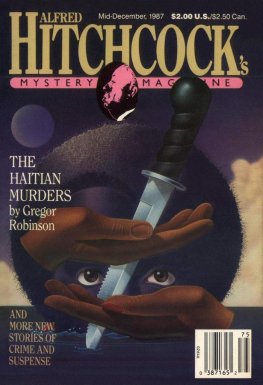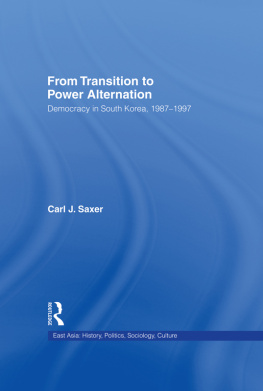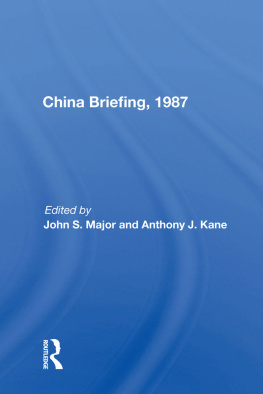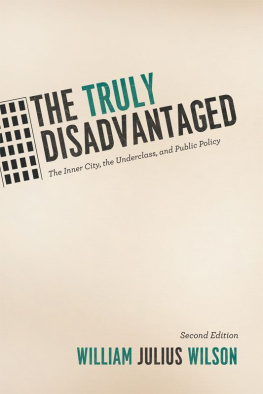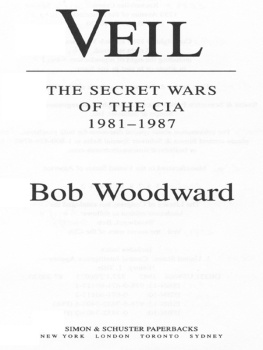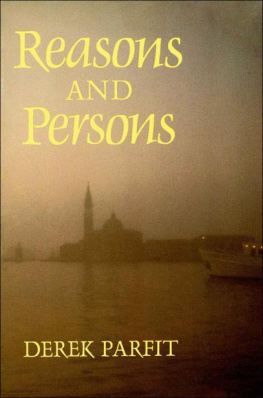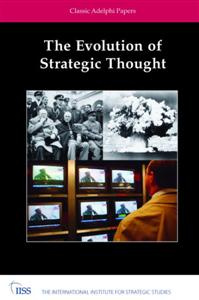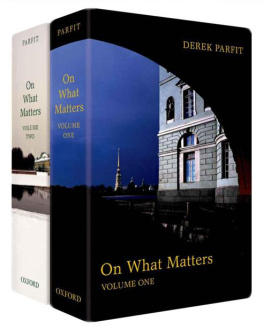Parfit - 2007;1987;
Here you can read online Parfit - 2007;1987; full text of the book (entire story) in english for free. Download pdf and epub, get meaning, cover and reviews about this ebook. City: Oxford, year: 2007;1987;1984, publisher: Oxford University Press, Incorporated;Clarendon Press, genre: Science fiction. Description of the work, (preface) as well as reviews are available. Best literature library LitArk.com created for fans of good reading and offers a wide selection of genres:
Romance novel
Science fiction
Adventure
Detective
Science
History
Home and family
Prose
Art
Politics
Computer
Non-fiction
Religion
Business
Children
Humor
Choose a favorite category and find really read worthwhile books. Enjoy immersion in the world of imagination, feel the emotions of the characters or learn something new for yourself, make an fascinating discovery.

- Book:2007;1987;
- Author:
- Publisher:Oxford University Press, Incorporated;Clarendon Press
- Genre:
- Year:2007;1987;1984
- City:Oxford
- Rating:3 / 5
- Favourites:Add to favourites
- Your mark:
- 60
- 1
- 2
- 3
- 4
- 5
2007;1987;: summary, description and annotation
We offer to read an annotation, description, summary or preface (depends on what the author of the book "2007;1987;" wrote himself). If you haven't found the necessary information about the book — write in the comments, we will try to find it.
2007;1987; — read online for free the complete book (whole text) full work
Below is the text of the book, divided by pages. System saving the place of the last page read, allows you to conveniently read the book "2007;1987;" online for free, without having to search again every time where you left off. Put a bookmark, and you can go to the page where you finished reading at any time.
Font size:
Interval:
Bookmark:
REASONS AND PERSONS
At last the horizon appears free to us again, evengranted that it is not bright; at last our ships may venture out again, venture out to face any danger; all the daring of the lover of knowledge is permitted again; the sea, our sea, lies open again; perhaps there has never yet been such an Open sea.
N IETZSCHE ,
BY
DEREK PARFIT
CLARENDON PRESS OXFORD
OXFORD
UNIVERSITY PRESS
Great Clarendon Street, Oxford OX2 6DP
Oxford University Press is a department of the University of Oxford.
It furthers the Universitys objective of excellence in research, scholarship,
and education by publishing worldwide in
Oxford New York
Auckland Cape Town Dar es Salaam Hong Kong Karachi Kuala Lumpur
Madrid Melbourne Mexico City Nairobi New Delhi Shanghai Taipei Toronto
With offices in
Argentina Austria Brazil Chile Czech Republic France Greece
Guatemala Hungary Italy Japan Poland Portugal Singapore
South Korea Switzerland Thailand Turkey Ukraine Vietnam
Oxford is a registered trade mark of Oxford University Press
in the UK and in certain other countries
Published in the United States
by Oxford University Press Inc., New York
Derek Parfit 1984
The moral rights of the author have been asserted
Database right Oxford University Press (maker)
First published 1984
First issued in paperback (with corrections) 1986
Reprinted with further corrections 1987
All rights reserved. No part of this publication may be reproduced,
stored in a retrieval system, or transmitted, in any form or by any means,
without the prior permission in writing of Oxford University Press,
or as expressly permitted by law, or under terms agreed with the appropriate
reprographics rights organization. Enquiries concerning reproduction
outside the scope of the above should be sent to the Rights Department,
Oxford University Press, at the address above
You must not circulate this book in any other binding or cover
and you must impose this same condition on any acquirer
British Library Cataloguing in Publication Data
Data available
Library of Congress Cataloging in Publication Data
Parfit, Derek.
Reasons and persons.
Includes bibliographical references and index.
1. Ethics 2. Rationalism. 3. Self. I. Title.
BJ1012.P39 1984 170 83-15139
ISBN 978-0-19-824908-5 (pbk)
Printed in Great Britain
on acid-free paper by
CPI Antony Rowe, Chippenham, Wiltshire
To my parents
Drs. Jessie and Norman Parfit
and my sisters
Theodora and Joanna
S IXTEEN years ago, I travelled to Madrid with Gareth Evans. I hoped to become a philosopher, and as we drove through France I put to him my ideas. His criticisms made me despair. But before we reached Spain, I saw that he was almost as critical of his own ideas. Like many others, I owe much to the intensity of his love of truth, and his extraordinary vitality. I record this debt first because he died when he was 34.
I owe a great deal to my first teachers: Sir Peter Strawson, Sir Alfred Ayer, David Pears, and Richard Hare. I have since learnt from many people. In discussion I have learnt most from Thomas Nagel, Ronald Dworkin, Tim Scanlon, Amartya Sen, Jonathan Glover, James Griffin, Ann Davis, Jefferson McMahan, and Donald Regan. I have learnt much more from reading the writings of these and many other people. Some of my debts I acknowledge in the endnotes to this book. But I am certain that, because of my weak memory and failure to make proper notes, this book presents, as if they were my ideas, many claims or arguments that I ought to attribute to some source. These forgotten sources, if they read this book, will be rightly aggrieved. Though they should be mentioned in the endnotes, I hope that most are at least mentioned in the Bibliography.
Several people helped me to write this book. Before he died two years ago, John Mackie wrote extremely helpful comments on my earlier work. In the last few months I have received many comments on a draft of this bookso many that I have not had time to make all the needed revisions. Here is a randomly ordered list of those who have helped me in this way: Jonathan Glover, Sir Peter Strawson, John McDowell, Susan Hurley, Paul Seabright, John Vickers, Hywel Lewis, Judith Thomson, Samuel Scheffler, Martin Hollis, Thomas Nagel, Robert Nozick, Richard Lindley, Gilbert Harman, Christopher Peacocke, Peter Railton, Annette Baier, Kurt Baier, Richard Swinburne, Michael Tooley, Mark Sainsbury, Wayne Sumner, Jim Stone, Dale Jamieson, Eric Rakowski, James Griffin, Gregory Kavka, Thomas Hurka, Geoffrey Madell, Ralph Walker, Bradford Hooker, Douglas Maclean, Graeme Forbes, Bimal Matilal, Nicholas Dent, Robert Goodin, Andrew Brennan, John Kenyon, James Fishkin, Robert Elliott, Arnold Levison, Simon Blackburn, Ronald Dworkin, Amartya Sen, Peter Unger, Peter Singer, Jennifer Whiting, Michael Smith, David Lyons, Milton Wachsberg, William Ewald, Galen Strawson, Gordon Cornwall, Richard Sikora, Partha Dasgupta, Dr. Jessie Parfit, and Dr. Charles Whitty.
I learnt something from everyone just named, and from some I learnt a great deal. From a few people I learnt so much that I want to thank them separately. Jonathan Bennett sent me very helpful comments on half of my draft. Bernard Williams sent me extremely helpful comments on a draft of Part Three. Six other people sent me very helpful comments on drafts of the whole book. Four of these were John Leslie, Michael Woodford, Larry Temkin, and Donald Regan. From two other people I learnt even more. John Broome was a Visiting Fellow at my College throughout the academic year at the end of which I write these words. Both in written comments, and in very many discussions, he solved very many of my problems, and suggested many great improvements. If every passage due to John Broome was mentioned in the endnotes, there would be at least thirty of these notes. As the different academic disciplines drift away from their neighbours, it is heartening to find that an economist should be, in his spare time, so good a philosopher. The person from whom I have learnt the most is Shelly Kagan. Kagans extraordinarily acute and penetrating comments were half as long as my draft, and many of his suggestions are printed, with little change, in this book. If his co-authorship was mentioned in the endnotes, there would be at least sixty of these notes.
I write these words the day before this text goes to the printer. Because I received so many good objections or comments, I could not have revised and produced my text on time without help of other kinds. I have been helped by Patricia Morison, and greatly helped by Susan Hurley and William Ewald. Jefferson and Sally McMahan saved me many days of work in sorting papers, checking references, and compiling the Bibliography. This book is printed from camera-ready copy. Given my slowness in making the needed revisions, the four people who produced this copy have often, uncomplainingly, worked overtime, and late into the night. These generous people are Angela Blackburn, Jane Nunns, Paul Salotti, and, most generous of all, Catherine Griffin.
I am grateful for the help of everyone mentioned above. To those mentioned in the last two paragraphs I record here my extreme gratitude. This book has one author, but is really the joint product of all of these people.
Finally, I record my great gratitude to an entity that is not a person: All Souls College. If I had not had the extraordinary privilege of being a Prize Fellow and then a Research Fellow of this College for the past sixteen years, this book would certainly not exist.
All Souls College, Oxford
Font size:
Interval:
Bookmark:
Similar books «2007;1987;»
Look at similar books to 2007;1987;. We have selected literature similar in name and meaning in the hope of providing readers with more options to find new, interesting, not yet read works.
Discussion, reviews of the book 2007;1987; and just readers' own opinions. Leave your comments, write what you think about the work, its meaning or the main characters. Specify what exactly you liked and what you didn't like, and why you think so.

